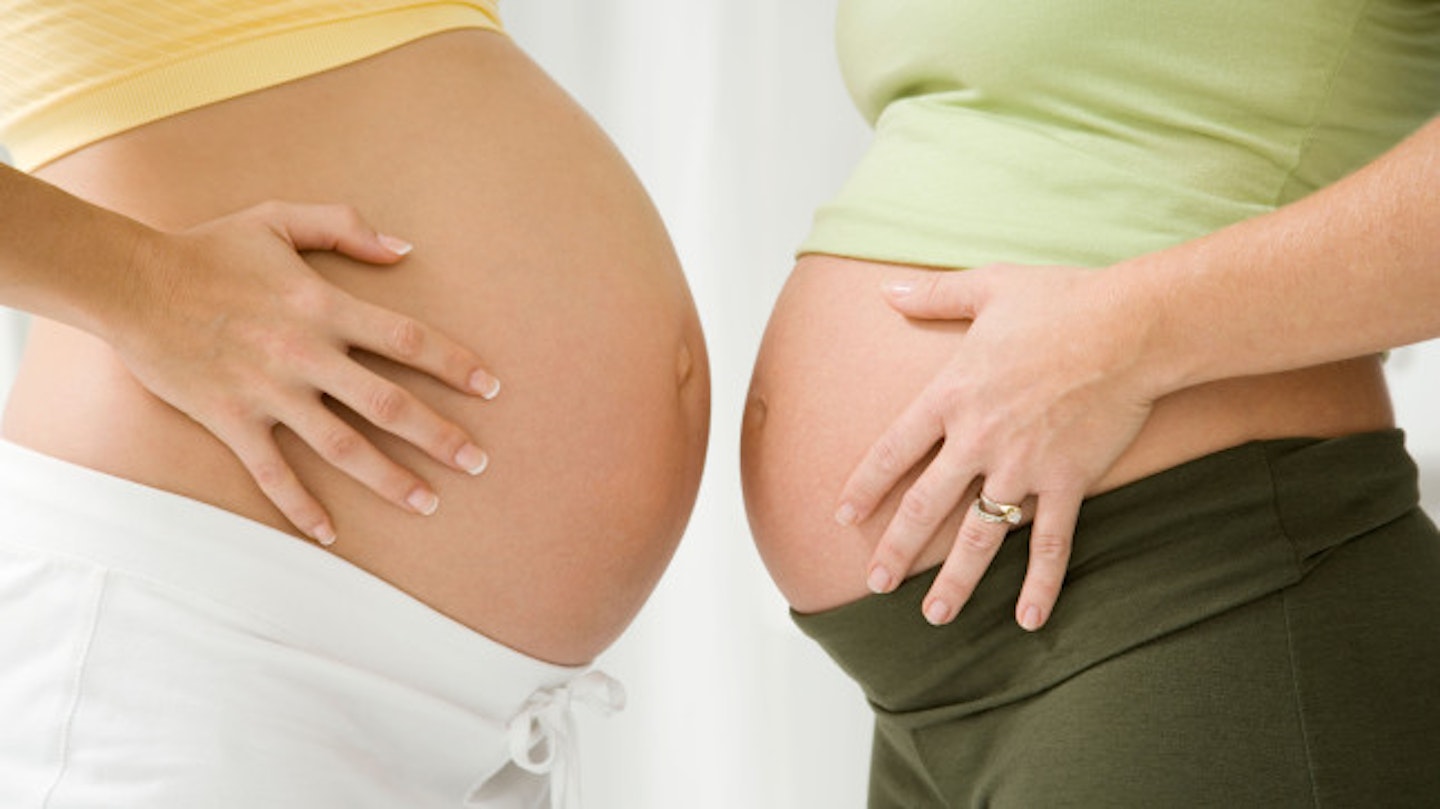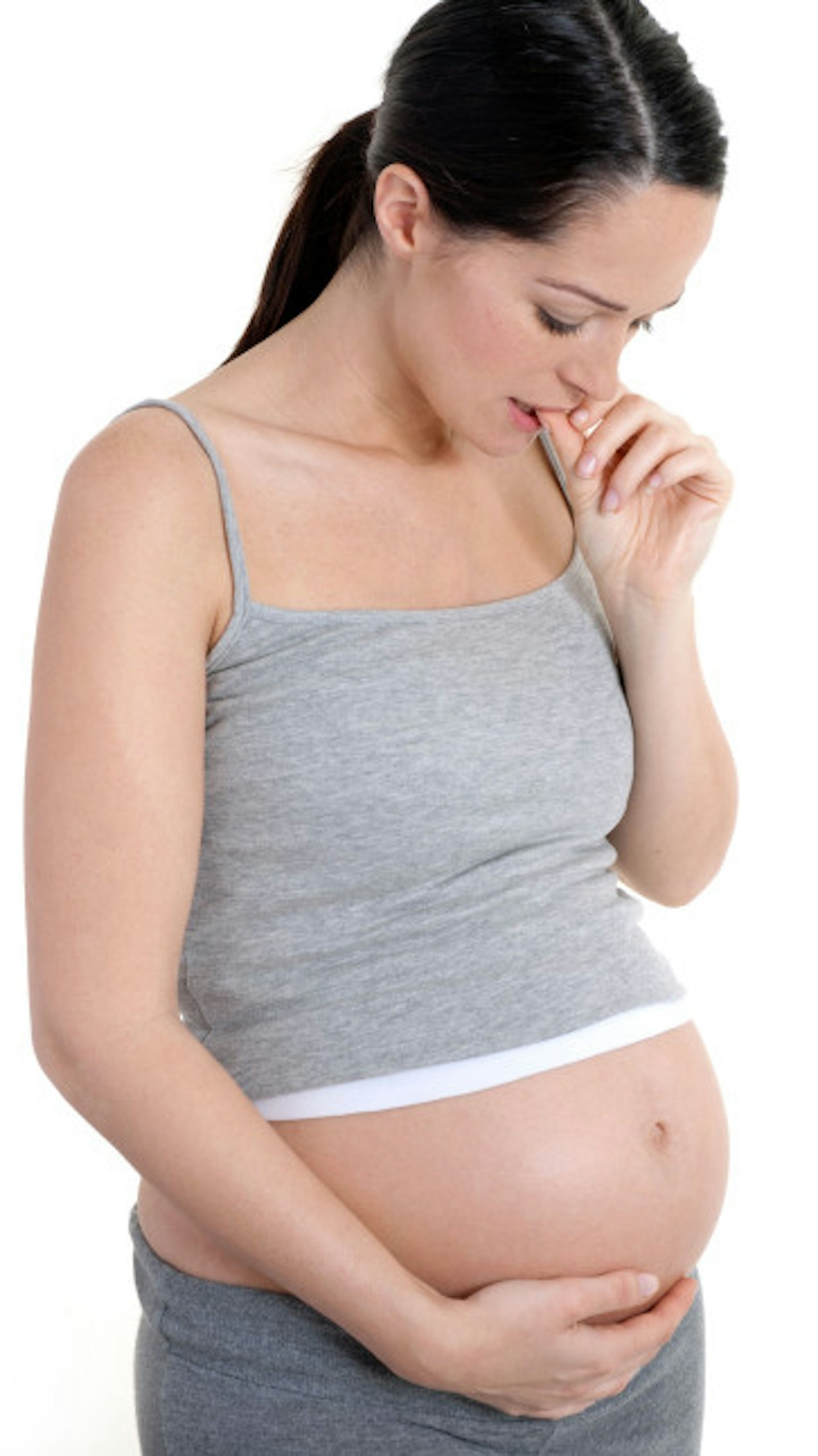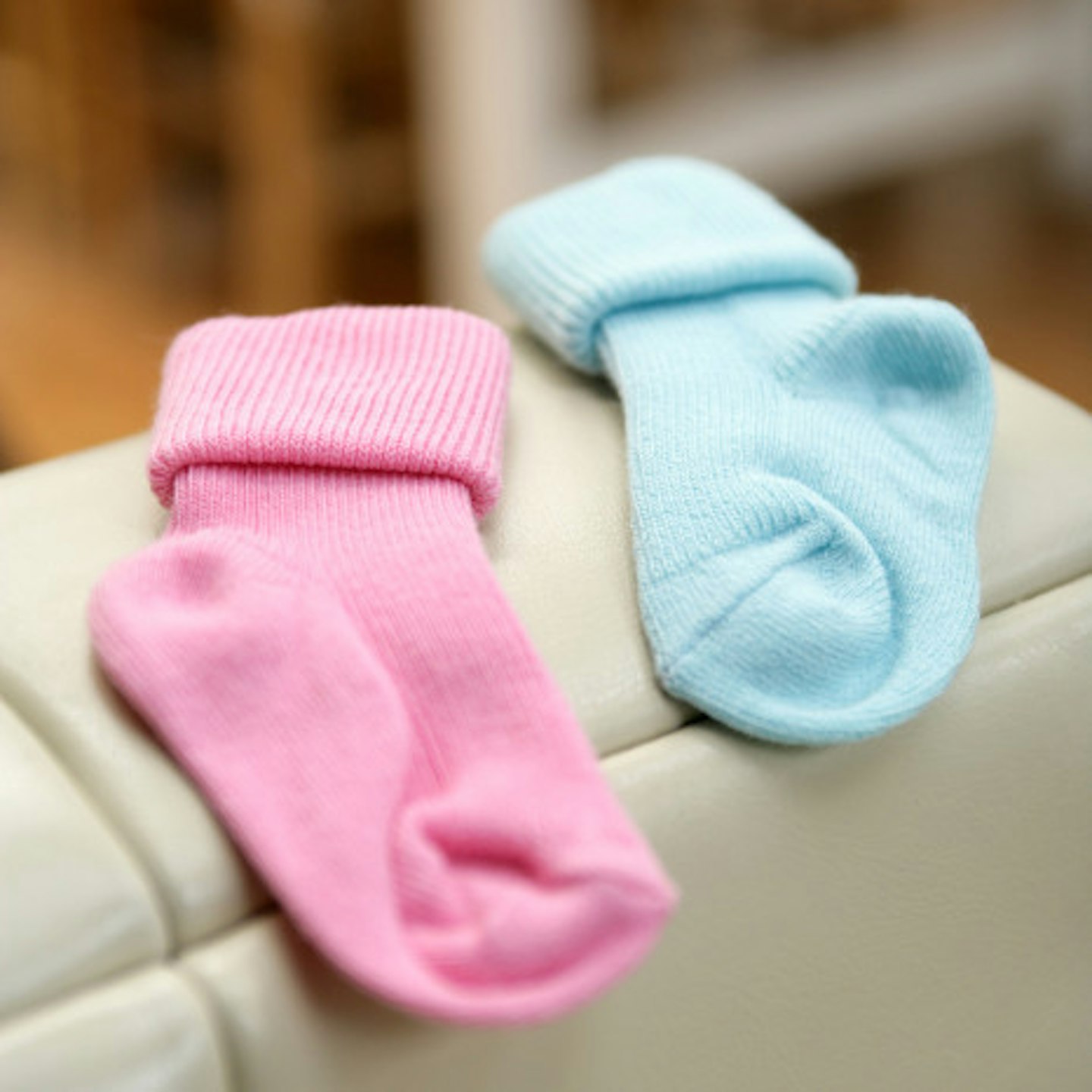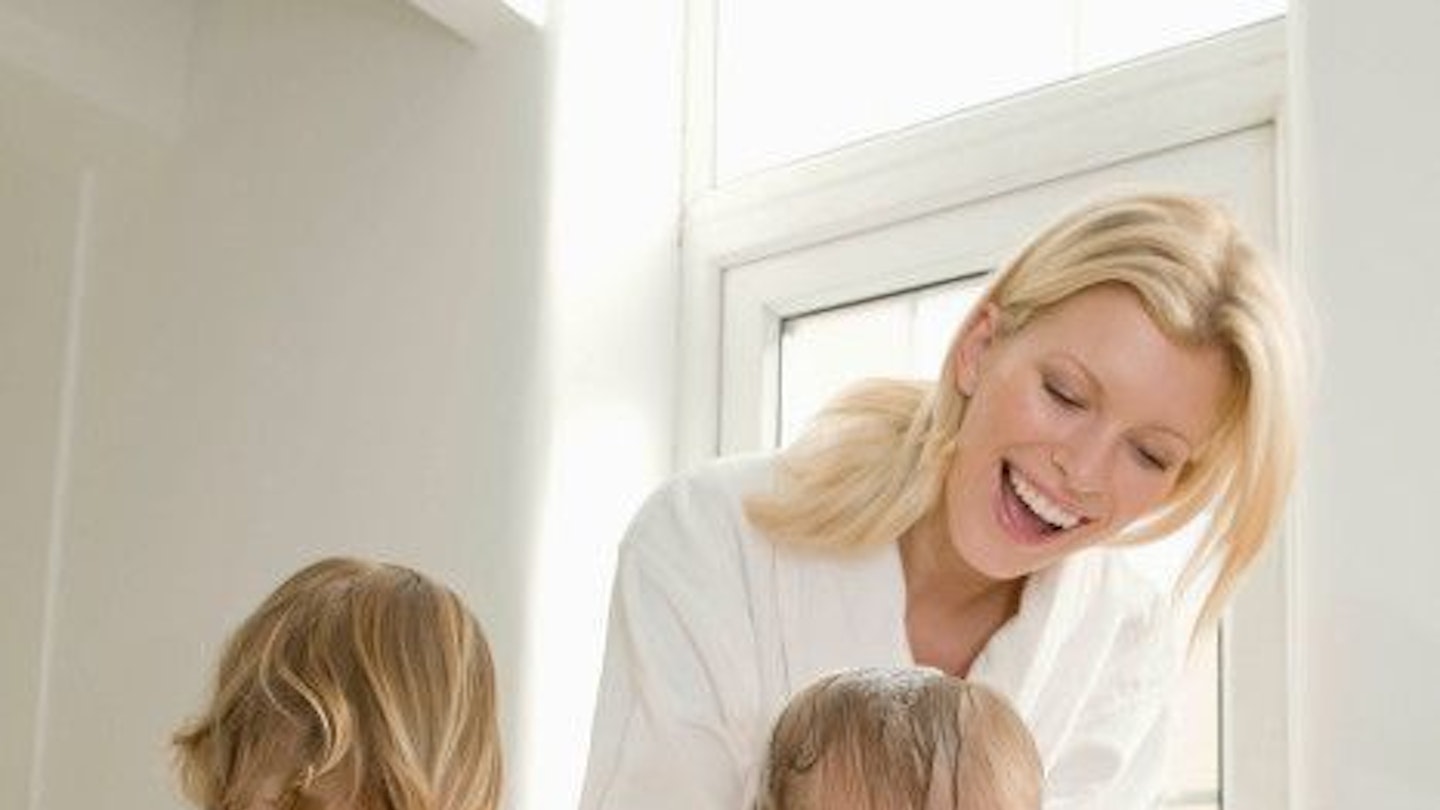According to the NHS, about 1 in every 64 births in the UK today are twins, triplets, or more.
But what should you be doing if a 2-for-1 deal (translation: having twins) takes your fancy? Thankfully, we've answered all of your questions about what to expect when you’re expecting - or trying to expect - more than one baby.
How can I tell if I'm pregnant with twins?
There are a few signs that may imply there's more than one bundle of joy in there. Obviously it's not definitive (if it was, we'd be wizards), but if you're experiencing any of the following, then you may be in for a double treat on your due date:
-
You seem bigger than you should be for your dates
-
Twins run in your family
-
You've had fertility treatment
-
You're in your 30s or 40s (older mothers are more likely to release more than one egg during ovulation)
In which countries are twins most common?
The highest rate of multiple births are among Nigerians, and the lowest among Japanese.
However you will not be able to have your suspicions confirmed until your dating ultrasound scan, which happens when you are 8 to 14 weeks pregnant.
How can I tell if my twins are identical?
According to the NHS, one-third of all twins will be identical, and two-thirds will be non-identical.
The most accurate way to find out if your little ones are identical is through a DNA test, which can only be conducted after they are born.
However, if your first ultrasound scan is done before 14 weeks, your technician may be able to tell you whether you are expecting identical or non-identical twins, depending on the placenta.

Are pregnancy symptoms worse with twins?
If you are pregnant with twins, you may notice that you are hit harder by some pregnancy symptoms.
These include:
Nausea, vomiting and morning sickness
If you are pregnant with twins, you will have higher levels of the pregnancy hormone human chorionic gonadotropin (hCG). Many believe that this is the cause of morning sickness.
Breathlessness
Higher levels of progesterone can make you feel short of breath in the earlier stages of your pregnancy - and, come the end of it all, you will have two babies pressed up against your diaphragm. Phew!
Constipation
Heartburn
Indigestion
Wind
Bloating
**Piles and varicose veins **
You are more likely to experience piles and varicose veins during a multiple pregnancy because of the weight the babies are putting on blood vessels in your pelvic area.
**Back and pelvic pain **
As you are carrying extra weight, you may notice that it puts a strain on your back and pelvic muscles.
Will I gain more weight if I'm pregnant with twins?
It is normal for women carrying twins to put on more weight than a woman who is carrying just one baby.
However, as in any pregnancy, try to eat a healthy diet to provide you and your babies with the nutrients you need. Eating for two is a bit of a myth, so don't live your (pregnant) life by it!
What should I eat if I am pregnant with twins?
The NHS advise: “Aim to eat a balanced, healthy diet that includes plenty of fruit, vegetables and wholegrains. These will help you avoid constipation as well as providing a range of vitamins and minerals.
“You also need some protein foods, such as lean red meat, well-cooked eggs, and nuts and seeds. Dairy foods such as milk, cheese and yoghurt are important for calcium.
“If you feel peckish, it's best to fill up on healthy snacks, such as fresh fruit, low-fat yoghurt or sandwiches filled with grated cheese, lean ham or mashed tuna. Try to avoid foods with empty calories, such as sugary snacks, crisps and fizzy drinks.”
They also advise that, as women who are pregnant with twins are more at risk of anaemia, you should eat plenty of iron-rich foods. Think lean red meat, leafy green vegetables, and beans.
You may also wish to consider taking iron supplements.

Do I need extra Folic Acid if I'm pregnant with twins?
In a word, yes.
Manju Monga, MD, the Berel Held Professor and the division director of maternal-foetal medicine at the University of Texas Health Sciences Centre in Houston, says that women pregnant with twins may need more folic acid to help stave off birth defects.
"We recommend 1 milligram of folic acid per day for twin pregnancies and 0.4 milligrams for singleton pregnancies,” she said.
Folic acid is known to reduce risk of neural tube birth defects such as spina bifida.
Can I still exercise while I am pregnant with twins?
You can, and should, exercise while pregnant with twins; it will help to tone up muscles and ward off aches and pains, not to mention strengthen your body for labour.
The NHS suggest exercises that won’t overstress your joints, such as walking, swimming, pregnancy yoga, pilates, or tai chi.
Do I need to do extra pelvic floor exercises if I am pregnant with twins?
Every pregnant woman should do pelvic floor exercises to strengthen her muscles. If done properly, they can lead to an easier birth and recovery, preventing prolapse and incontinence.
Watch the below video for more information on how to do these:
Will I be more tired with a twin pregnancy?
As you are carrying two babies, you will probably find your pregnancy quite tiring.
Health experts recommend taking maternity leave as early as you can, so that you can grab daytime naps whenever you can. This is because you will find it hard to sleep at night (your bump can make bedtime uncomfortable), so you will want to get as much rest as possible.
Find more tips on how to sleep at Tamba now.
Should I get more scans with a twin pregnancy?
You should absolutely be offered extra scans and antenatal appointments if you are expecting twins.
The exact number of appointments and scans will depend on whether or not you’ve experienced pregnancy complications in the past, and whether or not your babies share a placenta (identical twins).
This is because twins who share a placenta are more likely to experience complications than twins who each have their own placenta.
According to the NHS, your extra scans and antenatal appointments will allow your doctor or midwife to monitor your twins and check how well they are growing. Scans will also pick up any complications that may be developing.
What medical tests should I get if I am pregnant with twins?
Pregnant women expecting twins have a higher risk of developing high blood pressure, pre-eclampsia, gestational diabetes, and anaemia. Because of this, you will be be given regular blood and urine tests, so that medical staff can keep a close eye on how things are progressing.
You should also be offered an extra blood test for anaemia when you are between 20 weeks and 24 weeks pregnant, and a repeat test at 28 weeks.

What are the risks of a twin pregnancy?
Most twin pregnancies are healthy and result in healthy babies. However you should be aware that you will be at higher risk from pregnancy complications, such as anaemia, pre-eclampsia, and gestational diabetes.
What is pre-eclampsia?
Pre-eclampsia - which can affect all pregnancies - is more of a risk in twin pregnancies.
It is thought to happen when the placenta isn’t working properly, causing the glow of blood to be reduced.
This means that your babies won't get enough oxygen and nutrients, which may restrict their growth.
The warning signs of pre-eclampsia include:
-
Severe headaches
-
Vision problems, such as blurring, or flashing lights before your eyes
-
Pain in your upper abdomen
-
Vomiting
-
Sudden swelling of your feet, ankles, face and hands
-
Excessive weight gain because of fluid retention
What is anaemia?
Iron deficiency anaemia is a condition where a lack of iron in the body leads to a reduction in the number of red blood cells.
All pregnant women are at risk for becoming anaemic, because they need more iron and folic acid than usual. But the risk is higher if you are pregnant with twins.
Severe or untreated anaemia during pregnancy cam increase your chances of having a premature birth or a baby with anaemia. There are also some studies which link it to post-natal depression.
The symptoms include:
-
Pale skin, lips, and nails
-
Feeling tired or weak
-
Dizziness
-
Shortness of breath
-
Rapid heartbeat
-
Trouble concentrating
What is gestational diabetes?
Gestational diabetes mellitus (GDM) is a type of diabetes that arises during pregnancy (usually during the second or third trimester).
It affects how your cells use sugar (glucose), causing high blood sugar that can affect your pregnancy and your baby's health.
What are the symptoms of gestational diabetes?
For most women, gestational diabetes doesn't cause noticeable signs or symptoms.
Schedule regular appointments with your doctor or midwife,so that they can keep a close eye on your blood sugar levels. And be sure to eat a healthy diet while pregnant, too.
Try not to worry: The majority of twin pregnancies result in healthy babies
Just make sure you go to all your antenatal appointments so any problems can be picked up early and treated if necessary - and do be alert to any unusual or worrying symptoms.
If you are not happy about something, or are concerned, then trust your instincts and speak to your GP or midwife.

I am experiencing vaginal bleeding during pregancy - what does this mean?
According to Tamba, one in four multiple mothers reported some vaginal bleeding or spotting in pregnancy.
They explain: “It is usually harmless. However, it is essential to tell your doctor immediately should it happen to you so that serious complications – such as ectopic pregnancy or problems with the placenta – can be ruled out.”
What is twin-to-twin transfusion syndrome (TTTS)?
Tamba explain: “This is a rare complication that only affects twins who share a placenta. In TTTS, a blood transfusion occurs from one twin (the ‘donor’) to the other (the ‘recipient’).
“The donor twin becomes smaller and may suffer anaemia, while the recipient twin is put under strain. Often the donor twin also runs short of amniotic fluid but the recipient has lots, which can cause the mother’s belly to become larger than would be expected.
“If TTTS is diagnosed, your pregnancy will be closely monitored by frequent ultrasounds to check on the babies’ growth. If necessary, you may be offered laser ablation therapy to separate the blood vessels in the placenta.”
If you are experiencing a TTTS pregnancy, visit the Tamba website now to download their expert gide on what to expect.
Is a premature birth more likely with twins?
Premature birth, before 37 weeks, happens in more than half of twin pregnancies.
The signs and symptoms of preterm labour are regular contractions of the womb, building up in strength and frequency, sometimes with passage of the mucous plug (‘show’) or breaking of the waters.
Call your midwife if you think you are in labour, or if you are really worried, go straight to hospital.

How should I prepare for my birth with twins?
As twins often arrive early, it’s a very good idea to have your hospital bag packed and ready to go by week 26.
Tamba also advise: “Towards the end of your pregnancy, cook double portions when you prepare a meal and freeze the extra. Once your babies are here, having some ready-cooked meals on hand will be a boon.”
They add: “Think ahead about getting some help. Paternity leave usually lasts two weeks, plus your partner may be able to take a week or two extra of holiday or unpaid.
“Beyond that, don’t be afraid to organise any willing family or friends into a rota so that you know you will have an extra pair of hands arriving at regular intervals.”
Should my twin babies sleep together?
Many twin babies share a cot for the first month, sometimes longer.
Some research suggests that twin babies who share a cot tend to have similar sleeping patterns and don’t wake up more than babies who sleep apart.
The NHS advise: “You may put your twins to sleep in a single cot while they're small enough, either because they slept together in hospital or because space is tight. This is called co-bedding and is perfectly safe.
“In fact, putting twins in the same cot can help them regulate their body temperatures and sleep cycles, and can soothe them and their twin.
“If you put your twins in the same cot, follow the same safe sleeping advice as for a single baby. They should be placed on their backs with the tops of their heads facing one another and their feet at opposite ends of the cot, or side by side on their backs, with their feet at the foot of the cot.”
Prepare a cot for them in your room (if you have space), as it’s recommended that they sleep in with you for their first six months.
Will twin babies be more tiring than one baby?
Coping with two babies is harder than coping with just one, so it may take you longer to get into a routine that suits you.
And it’s worth remembering that premature newborn babies have tiny stomachs and need to feed every two to three hours - try to express milk and work out a routine with your partner, so that both of you get some rest.
By the time they're four to six months old, they should generally not need their night-time feed.

Can I breastfeed twins?
If you want to breastfeed – and lots of mums do – then it can help to attend antenatal classes specifically for multiple pregnancies, as they usually have a session on breastfeeding.
Best Beginnings have created an amazing information video on breastfeeding twins; watch it here if you are considering this method of feeding.
However, if you decide breastfeeding is not possible, bottle-feeding is also a great option. Why not speak to other mums of twins to find out how they handled the situation?
For more information on twin pregnancies, visit the Twins & Multiple Births Association now.
